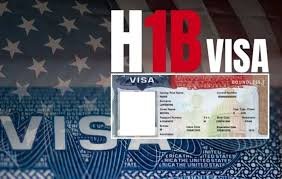The United States of America has introduced an initiative that allows business owners, startup founders, and sole proprietors and Foreign-born innovators to self-sponsor their H-1B visa without needing a traditional US employer.
This change redefines who qualifies as an “employer” under the H-1B visa program, making it significantly easier for foreign-born innovators to build and scale their ventures on American soil.
New H-1B Visa Policy
The new policy officially opens doors for individuals and entrepreneurs to sponsor themselves for a US work visa compared to the previous arrangement where entrepreneurs and founders needed a separate US-based employer to request the work visa on their behalf.
As a result of the latest changes confirmed by the US Citizenship and Immigration Services (USCIS), eligible entrepreneurs can now: sponsor themselves under their own company, serve as both owner and employee if the business structure supports this dual role as well as compete for H-1B visas through the standard or cap-exempt application process.
Eligibility Requirements
To be eligible for a self-sponsored H-1B visa as a founder or business owner in 2025, applicants must:
- Own or operate a legitimate US-based business.
- Prove the company’s financial viability, including the ability to pay the H-1B wage.
- Establish an employer-employee relationship, even if they are the sole owner.
- Have a “specialty occupation” requiring highly specialized knowledge. i.e: Software engineer, Data scientist, Financial analyst, Biotech researcher and AI specialist
- Possess at least a bachelor’s degree or higher in a field related to the job.
In summary, to qualify for an H-1B visa as a startup founder, you must structure your U.S. business (LLC, Corporation, etc.) to support a legitimate employer-employee relationship by setting up an independent board to oversee your role.
A strong business plan is also essential, detailing your product, market, financials, and hiring plans. You must also prove your startup can pay the required wage through bank records or funding evidence. Your role must qualify as a specialty occupation aligned with your academic background, and your employment must be supervised independently to meet USCIS requirements.
H-1B Visa Validity
The H-1B visa allows an initial stay of three years, with the possibility of extensions up to six years. Further extensions may be available if applicants are in the process of applying for lawful permanent residency (green card).
However, it’s important to note that H-1B visas remain subject to an annual cap and a lottery system, unless your company qualifies for an exemption (e.g., a nonprofit or research institution).
Reasons For Change?
The move is part of the U.S. government’s broader strategy to boost innovation, attract skilled professionals, and create new jobs.
“If more entrepreneurs are able to obtain H-1B status to develop their business enterprise, the U.S. could benefit from the creation of jobs, new industries, and new opportunities.” The Department of Homeland Security (DHS) stated.

